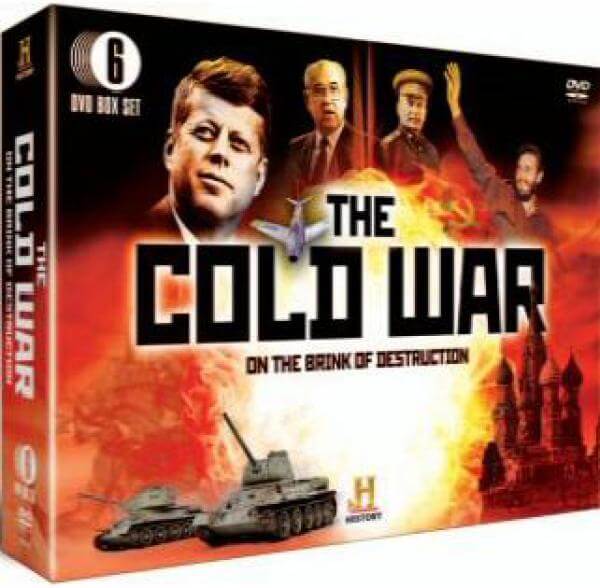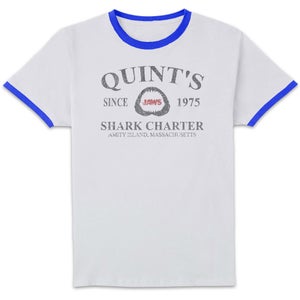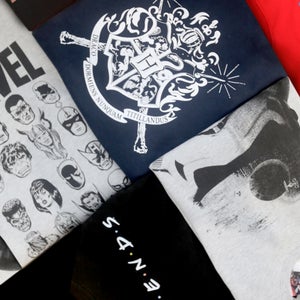Added to your basket
The Cold War - On The Brink of Destruction
RRP £14.99
£11.49
Save: £3.50
-
4 instalments of £2.87 with clearpay Learn more
Disc Listing:
Spy Planes: As the U.S.S.R. and the U.S. engaged in the dangerous battle for hearts, minds and power, engineers, pilots and military personnel were developing the most advanced planes ever seen.
Yanks For Stalin reveals the extent to which American labour and expertise contributed to Stalin's efforts to implement his five year plan and looks at how history has manipulated the facts.
Duck & Cover: The Cold War explores life as part of the Boomer Generation, the first people who lived with the real threat of mutually assured destruction.
The Rise and Fall of the Wall Declassified information from both sides of the Iron Curtain sheds new light on the enduring icon of the Cold War.
Bay Of Pigs Declassified: top secret documents, declassified after 40 years, offer a fascinating look inside one of the most infamous fiascoes of the Cold War.
Heroes Under Fire: Shadow Warriors: From Delta Force Operators to CIA Field Officers, SWAT teams to Navy SEALs, these are the stories of those who distinguish themselves above all others in perilous situations of combat, rescue missions, covert assignments, drug wars and hostile intelligence operations.
- E
- 2
- English
The Cold War - On The Brink of Destruction
RRP £14.99
£11.49
Save: £3.50
Sold out
-
4 instalments of £2.87 with clearpay Learn more
Delivery & Returns
Disc Listing:
Spy Planes: As the U.S.S.R. and the U.S. engaged in the dangerous battle for hearts, minds and power, engineers, pilots and military personnel were developing the most advanced planes ever seen.
Yanks For Stalin reveals the extent to which American labour and expertise contributed to Stalin's efforts to implement his five year plan and looks at how history has manipulated the facts.
Duck & Cover: The Cold War explores life as part of the Boomer Generation, the first people who lived with the real threat of mutually assured destruction.
The Rise and Fall of the Wall Declassified information from both sides of the Iron Curtain sheds new light on the enduring icon of the Cold War.
Bay Of Pigs Declassified: top secret documents, declassified after 40 years, offer a fascinating look inside one of the most infamous fiascoes of the Cold War.
Heroes Under Fire: Shadow Warriors: From Delta Force Operators to CIA Field Officers, SWAT teams to Navy SEALs, these are the stories of those who distinguish themselves above all others in perilous situations of combat, rescue missions, covert assignments, drug wars and hostile intelligence operations.
- E
- 2
- English
Other customers bought:
-
Jaws Quint's Shark Charter Unisex Ringer T-Shirt - White/Navy
2 for £20
Mix and match on a range of awesome t-shirts, get any 2 for £20. Simply add both items to your basket for the discount to apply!Shop Offer£14.99 -
-
Customer Reviews
Top Customer Reviews
Customer reviews are independent and do not represent the views of Zavvi.
One-sided
"The Cold War - On The Brink Of Destruction" is a box set of 6 DVDs on the Cold War that was originally made for the History Channel. They cover the threat of nuclear destruction (mostly about an underground shelter for Congress), the rise and fall of the Berlin Wall (mostly the means people used to cross from East to West), the Bay of Pigs (there is some political analysis here), Shadow Warriors (how the CIA aided the anti-Russian Mujahideen in Afghanistan), Yanks before Stalin (how some US companies, notably Ford, got involved in the Soviet Union in the 1930s), and spy planes (about US spy plane missions over the USSR). In all there is some interesting material here. But there are two major weaknesses. First, the stories are told entirely from the US point of view and offer no insight at all on the politics of the Soviet Union and therefore no explanation of how and why the Cold War developed (and ended) as it did. Second, there is very little analysis and reflection in these programmes - they assume audiences are mostly interested in technical matters, war footage, tales of heroism and the like. The Soviet leader to receive most attention is Khrushchev, who is presented as a belligerent opponent of the Americans, thereby missing the complexity of this leader and the fact that there was a 'thaw' in the Cold War in the later 1950s - early 60s. Having watched these one is little wiser about the international politics of the Cold War.
Was this helpful?





